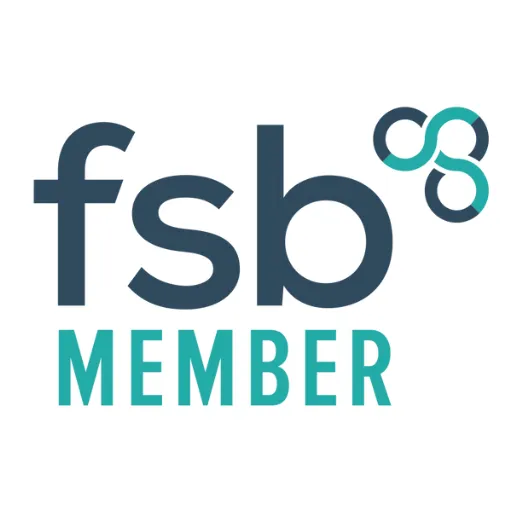Insights And Tips For Business Growth
Insights And Tips For Business Growth
Insights And Tips For Business Growth
Insights And Tips For Business Growth
Welcome to our Blog page, we not only aim to provide practical advice on business automation, efficiency, and future-ready strategies, but also reflection, thought provoking and entertaining reads. Whether you're a start-up or an established SME, our expert insights will help you streamline your systems, boost productivity, and stay ahead in a rapidly evolving marketplace.

Procrastination - The Playful Thief of Time or Something more Sinister?
You're at your desk, the to-do list is glaring at you like a headmistress in detention. You know what needs to be done; the report for that client, the emails needing responses, the tender application… and so it goes on. But instead of cracking on with it, you find yourself doing everything but.
Welcome to the world of procrastination. There are of course 2 sides to this dilemma. People have the most hilarious habits and stories to tell about procrastination, but the root of why we do it can be quite serious. There is also an argument for the benefits of this activity (OK three sides to this).
I’ll start with the lighter side of this subject and share some activities frequently shared by business owners.
- Refreshing your inbox every five minutes, convinced a crucial email will arrive any second.
- Aimlessly scrolling through social media, embarking on random research about the history of the eraser, only to find yourself an hour later watching a documentary on ancient office supplies and doing another search to find out when the last fax machine was produced.
- Suddenly deciding that arranging your desk or even the entire office is a priority.
- Raiding the office kitchen, convinced that a snack will provide the necessary boost to get started. If working from home this is even more dangerous as the route to the kitchen presents several other tasks that require attention.
These scenarios are all too familiar but why do we procrastinate?
It’s tempting to write off procrastination as simple laziness, but it’s far more nuanced. Procrastination is a complex behaviour driven by various psychological factors (you will all know by now I love a bit of psychology,) and all of equal importance and relevance:
Fear of Failure: The fear of not completing a task perfectly can be paralysing. Some people may delay starting to avoid facing potential failure.
Overwhelm: When tasks seem too large or complex, it’s easier to avoid them altogether than to dive in and risk drowning in work. This is very common with students, but sole traders and small business owners very often feel this as they are required to wear so many hats within the business and are bombarded with things that need attention.
Perfectionism: Striving for perfection can lead to procrastination. If we can’t do it perfectly, why do it at all?
Lack of Interest: Tasks that don’t engage us or seem boring are prime candidates for procrastination. Don’t miss the irony here - you often choose a boring, repetitive and utterly pointless activity instead of the boring thing that actually needs doing.
Decision Fatigue: The mental strain of making decisions can lead us to delay tasks, preferring the immediate gratification of simpler activities. Business owners make decisions constantly, all day every day, with the consequences, good or bad, laying firmly with them. This can become unconsciously overwhelming, leading to that part of your brain temporarily going on strike.
While the lighter moments of procrastination are fun to share, it’s crucial to recognise the serious impact procrastination can have on productivity and efficiency. As a small business owner the consequences of this lie with you and you alone, but as an employer, it can be frustrating to say the least, as procrastination can lead to a significant decrease in productivity. Tasks pile up, deadlines are missed, and the quality of work suffers.
A common activity all small business owners find themselves doing at some point is obsessing over the little things such as aesthetics; font’s, images, sounds, colours… on websites, landing pages, flyers or adverts. That’s not to say this is not important, but can often have us spending far too much time being reluctant to make a final decision. Reframe the mind from perfection to production. You could spend weeks tweaking your company’s website design instead of focusing on product development or advertising; while you have a stunning website, nobody knows it’s there and your products are not ready to go. Prioritising aesthetics over functionality can therefore cost your business valuable time and money.
Procrastination can also increase stress. Delaying tasks often leads to a last-minute rush to complete them, resulting in higher stress levels and potential burnout. Some of us perform better under stress and thrive on deadlines but this can be extremely anxiety inducing for others. Spending the entire day avoiding an important task, only to find yourself working late into the night to meet the deadline can be unproductive, overwhelming and exhausting - ultimately having a negative impact on your business growth. If you are consistently cramming to meet deadlines, opportunities can be missed, you may not be responding promptly to changes or trends in the market and your business fails to grow as it should.
Poor decision-making is another consequence. Procrastination often leads to rushed decisions made under pressure rather than thoughtful, strategic choices. When decisions are made in haste, they are more likely to be flawed, leading to further problems down the line.
A culture of procrastination can also decrease morale. When leaders and business owners procrastinate, it sets a precedent for employees to do the same. This can lead to a general lack of motivation and productivity within the team or company as a whole.
Then, ultimately, there’s guilt. Guilt is a significant and often overlooked effect of procrastination. When we procrastinate, we often feel guilty about not being productive. This guilt can create a cycle of negative emotions, further hindering our ability to work effectively, triggering a snowball effect in our brains. Guilt can be particularly damaging for small business owners who carry the weight of their business’s success on their shoulders. The constant feeling of not doing enough can be detrimental to both their mental health and their business.
The Science of Procrastination
Procrastination has been studied extensively by psychologists and neuroscientists. Research shows that it is linked to the brain’s limbic system, the most dominant part of the brain, in battle with the prefrontal cortex, the part that regulates our thoughts, actions and emotions. When we procrastinate, we often choose short-term pleasure (like watching a funny video) over long-term goals (completing a report).
Dr. Tim Pychyl, a leading expert on procrastination, describes it as an “emotional regulation problem.” Instead of facing a task that induces anxiety or discomfort, we choose to do something that makes us feel better in the moment. This short-term mood repair, however, often leads to long-term stress and regret.
So, how can small business owners combat procrastination and boost productivity?
One of the most effective ways to combat procrastination is through proactive planning. By anticipating potential obstacles and creating strategies to overcome them, small business owners can stay ahead of the game.
Identify Triggers: Recognising the situations or tasks that typically lead to procrastination is the first step. ‘Knowledge is Power’ and awareness allows you to develop strategies to deal with these triggers effectively. For example, if you tend to procrastinate on tasks that seem boring, try pairing them with something enjoyable, like listening to music.
Set Clear Goals with Realistic Deadlines: Breaking down large tasks into smaller, manageable chunks can make them feel less overwhelming. Clear goals provide a roadmap and make it easier to get started, and establishing realistic deadlines that allow ample time for completion can help keep you on track. Many of you will have heard the term SMART targets, if not, I recommend looking this up as it’s a useful tool in short and long term planning.
Prioritise Tasks: Using techniques like the Eisenhower Box can help prioritise tasks based on urgency and importance. Focusing on high-priority tasks first ensures that the most critical work gets done.
Create a Schedule: Establishing a daily or weekly schedule with specific time blocks dedicated to different tasks can help you stay on track. Sticking to the schedule as closely as possible can reduce the temptation to procrastinate. Time blocking is also great for those who like the deadline as it encourages you to finish a task within a given time.
Eliminate Distractions: Identifying common distractions and finding ways to minimise them can improve focus. This might involve setting boundaries for social media use, closing all those tabs, creating a dedicated workspace, or if you work from a home office try working in a local space instead for a couple of days a week.
Use Productivity Tools and Techniques: Leveraging time management methods like the Pomodoro Technique, to-do lists and time-tracking apps can help you stay organised and accountable.
Practice Self-Compassion and Reflection: Being kind to yourself when you do procrastinate is essential. Understanding that procrastination is a common behaviour and rather than trying to avoid it, embrace it and use it as an opportunity to take a brain break, learn and improve. This is far more effective than self-criticism, regret and guilt. Spending an hour perfecting an origami bird rather than working on a tender application could be a productive use of time if you have a child centred business or children visiting with potential customers. You may not have achieved much but have given your brain a rest and now you have a great party trick to win them over!
Seek Support: Sharing your goals and progress with a colleague, mentor, or accountability partner can provide motivation and keep you on track. External support can be a powerful tool in combating procrastination.
And above all
Reward Progress: Celebrating small victories along the way can boost motivation and reinforce positive habits. This is a must for any small business owner regardless of procrastination. Rewarding yourself for completing tasks can create a positive feedback loop that encourages further productivity.
Procrastination is a common challenge for everyone from students to small business owners, but it’s not insurmountable. For many of us, it is an enjoyable brain break with no harmful implications, but for others it can be a more serious concern. By understanding the reasons behind procrastination and implementing practical strategies to combat it, you can reclaim your time and boost productivity. Remember, it’s okay to have a little fun with procrastination now and then—just don’t let it become the norm.
So, the next time you find yourself organising your desk for the third time in an hour, take a step back, recognise the procrastination for what it is, and refocus on what truly matters. Your business will thank you, and you might even find that you have more time for those viral videos after all.
To find out more about how you can effectively utilise your time and efforts with the right tools for your business arrange a call and let's have a chat. Nothing to lose yet everything to gain.
Reviews
Photos Courtesy of LinkeIn
Testimonials Courtesy of Go High Level

Debbie DuBois
Compass Marketing Creative
"I felt completely supported as soon as I join the platform...These guys care about my business and have taken my business to the next level. The technology is continuing to shift and change while getting better and better. They are providing new services and things that I love."

Debbie DuBois
Compass Marketing Creative
"I felt completely supported as soon as I join the platform...These guys care about my business and have taken my business to the next level. The technology is continuing to shift and change while getting better and better. They are providing new services aDividernd thing that I love."

Alex Schlinsky
Founder of Prospecting On Demand™
"I have personally provided HighLevel to all of my elite clients in my mentorship program, and they have been utilizing it for prospecting, sales, fulfillment, keeping clients longer, making sure prospects never slip through the cracks, and utilizing things to save their time. If you're considering using HighLevel, use it. It's going to help your business scale!"

Shaun Kirk
PT Practice Success Marketing Creative
"The degree of service and value is phenomenal. Anything that you can think of or dream of, then a few days later you find out that it is going to be released the next week. The amount of listening they do with their customers is amazing. WHO DOES THAT? I am eternally grateful for HighLevel!"

Alex Schlinsky
Founder of Prospecting On Demand™
"I have personally provided HighLevel to all of my elite clients in my mentorship program, and they have been utilizing it for prospecting, sales, fulfillment, keeping clients longer, making sure prospects never slip through the cracks, and utilizing things to save their time. If you're considering using HighLevel, use it. It's going to help your business scale!"

Shaun Kirk
PT Practice Success Marketing Creative
"The degree of service and value is phenomenal. Anything that you can think of or dream of, then a few days later you find out that it is going to be released the next week. The amount of listening they do with their customers is amazing. WHO DOES THAT? I am eternally grateful for HighLevel!"

Christine Seale
President & CEO of NerdLevel
"It's been a complete game-changer for me. We've built our whole business around HighLevel now. We'll never go back."

Christine Seale
President & CEO of NerdLevel
"It's been a complete game-changer for me. We've built our whole business around HighLevel now. We'll never go back."
Our Focus Is Your Growth.



© 2025 My Biz Solution Ltd - All rights reserved. Terms of Service I Privacy Policy I Acceptable Use Policy I Cookie Policy
© 2025 My Biz Solution Ltd- All Rights Reserved



